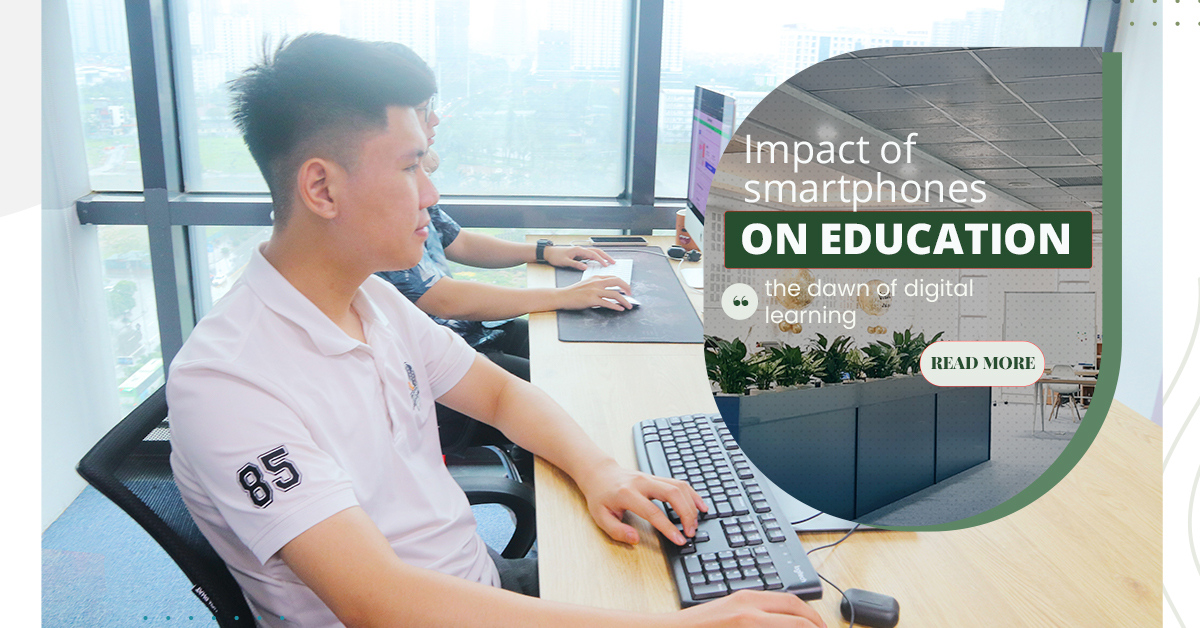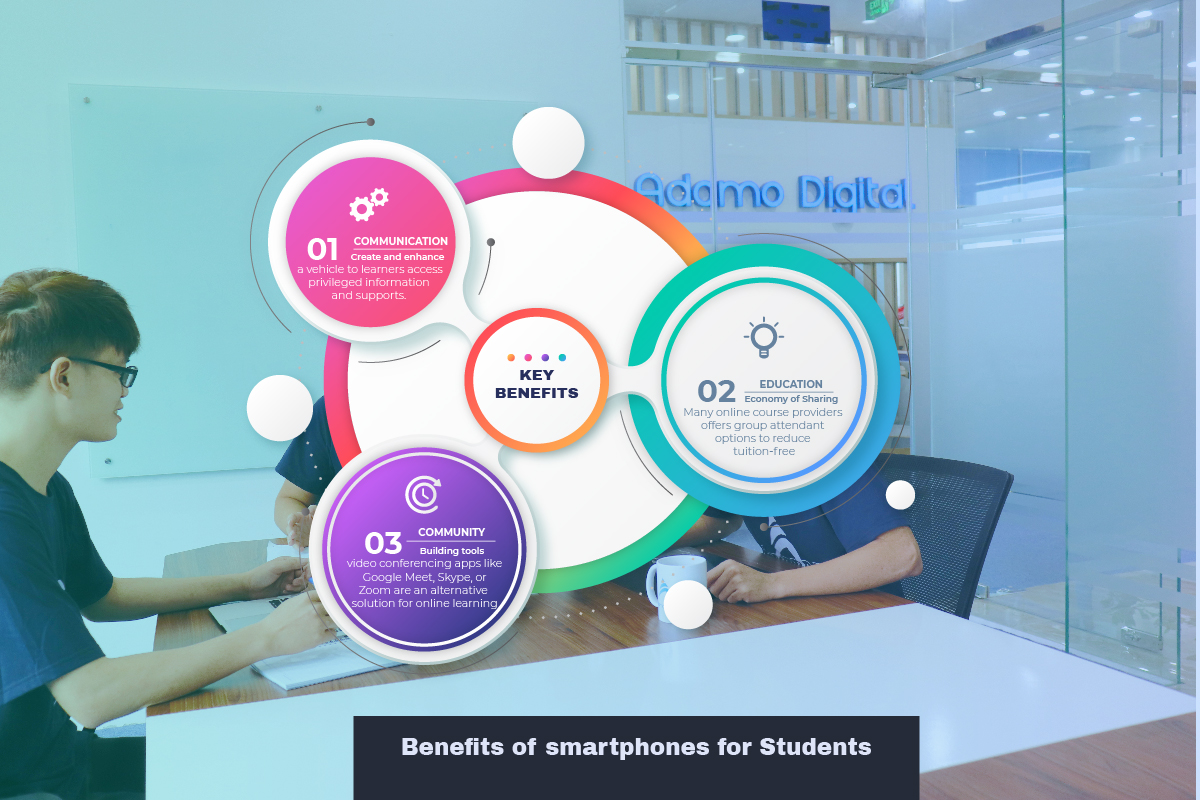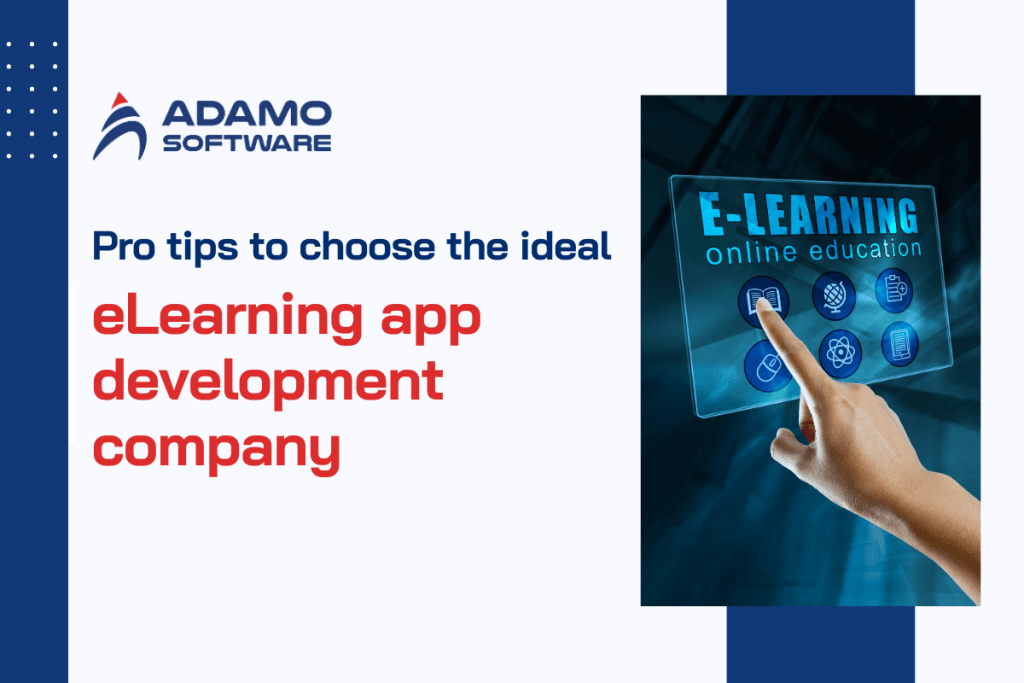Impact of smartphones on education: the dawn of digital learning

The world has been invaded by smartphone owners, that the profound impact of smartphones on education caused adjustments in both teaching and learning activities.
Last decades, many schools across the world banned their students from using mobile phones. The reason for that implication is that using mobiles caused distraction during school times. At that time, teachers took responsible for deterring students from bringing their phones to classes by having class disciplines or punishments for students who violated the rule.
These days, using smartphones in the classroom is extremely popular as an indispensable learning assistant tool. In the era of digital education, smartphones, tablet, or laptop would expectedly replace physical books/ study documents inside schools. During the pandemic crisis, schools have to shut down physical classes to pursue virtual classroom apps. The use of mobile phones in education becomes more apparent in supporting this kind of learning.
In this article, we discuss the influence of smartphone on education, and how education businesses could leverage this trend to maximize their performance and benefit students.
Use of smartphones in education
In fact, along with the development of the living standard, the number of people who access mobile phones increase steadily. In solely America 2020, roundly 80% of households owned smartphones and had internet access. A high number of smartphone owners has been reported in many other countries. Accordingly, using smartphones for teaching and learning is the current and future of the education industry.
Instead of a type of entertainment device, smartphones bring effective learning solutions to teachers and students in many ways. Indeed, the impact of smartphone on education can be experienced in many aspects.
Impact of smartphones on education
In terms of students, the benefits of smartphones for students are undeniable in changing their behavior in life and learning. In the past, lecture materials were also indicated in physical forms or merely stored on desktops. Accordingly, it took time to access and reference those documents. The birth of smartphones makes students’ life more accessible that they can have books, learning material right on their phones.
Additionally, schools could also build online resources for students accessing useful information whatever they want. Leveraging an e-learning system or mobile learning system, students could access school databased or notices on the gadget.
Besides, applying mobile phones to learning added more flexibility and readiness in the learning process. It thoroughly changed the way teacher, schools, and students communicate. For example, when schools and teachers contacted parents, the technology barrier forced them to do those manually, which caused resource waste and raised the cost of school execution.
School management apps could help reduce the efforts of manual tasks. For example, it could execute automated tasks of notifying students/parents regarding school activities, mass update student grade books, and more.
Other impacts of smartphones on education came from series of app development solutions combined on it. In which, social media was believed as a leading sector in changing learning processes. Unfortunately, this influence is not come up with a positive view when parents claimed that using social media apps on smartphones, including Facebook, Instagram, Twitter reduced the time for learning.
Positive implications of smartphones on education: online learning
Undeniably, when students spent too much time playing smartphones, it poses a threat to their learning results. However, if smartphones are used in the right way, they could help raise the performance quality and solve the challenges of online learning. Accordingly, when schools and universities have to move online, using smartphones for learning is indispensable.

The impact of smartphones on education is whether positive or negative to society depends on students’ behavior.
_ Homework tracking tools: One of the significant challenges of e-learning. In which, teachers might get stuck with control the off-class time of students. They need technology solutions for keeping track and commenting on a large number of home projects or homework. Via eLearning portal apps, those tasks can be done with smartphones, including set up due dates, check submission, grading, and more.
_ Mass notification: teachers could use admin features of the education app on smartphones for setting reminders regarding to-do lists to all students. Also, they can choose custom reminders for each student based on assistant tools right on the app dashboard. For example, the mobile app can be used for scholarship application checklist for potential applicants, tuition fee reminders, and assignment submission reminders.
_ Instant class record: Using a virtual classroom app, teachers could handily take photos, record lectures, screen sharing, and more. Also, teachers could grand access to students specifying the suitable materials they need.
_ Instant note-taking, commenting, and feedback: students could use app extension to adding information right on the learning material by note apps, including Google Keep or Evernote.
_ Explore ranges of learning apps: students could accessibly approach dozens of apps in supporting learning habits and extending knowledge about soft skills. With game-based eLearning apps, students would improve their attention to learning materials and acquire lectures in a more exciting way.
Importance of mobile phones in education
We have discussed the use of smartphones in education for both offline and online learning. So, are smartphones important for the innovation of technology in education? The short answer is Yes.
Mobile apps for Education software development
Mobile education software development has steadily transformed the whole industry. As Education refers to focused areas of all countries, it is faced with a great chance of the next-gen evolution. According to Statista, despite students have still spent more time on mobile entertainment, the time spending on eLearning apps has been on the rise.
Expressly, the time for education from smartphone users reached over 8.5% by 2021. Accordingly, education mobile app development tends to be a worthwhile strategy for many education providers these days.
In diverse education software solutions these days, mobile apps are claimed as an effective way to turn on the entertaining learning mode. Regarding the impact of smartphones on education, learning apps could make lectures more exciting and funs by applying graphics, gamification, technology innovation (VR, AR, AI).
Additionally, the most significant effects of smartphones on education in 2022 and beyond would relate to customizability, which assists schools and instructors in designing the most appropriate training modes and goals for each student. Obviously, it would require enormous effort, which might be impossible when doing those in person. That’s why machine learning and artificial intelligence would drive attention.
Also read: How Educational Platform Empowers Learning Process In The Digital Era
Impact of smartphones on education: Benefits of smartphones for students
In fact, the benefits of smartphones for students are various, which would be different across countries and regions. Here are three significant discussions that make sense in major student groups

1. Create and enhance communication
Students could handily keep in contact with classmates, teachers, and schools via instant messaging platforms or free call apps with smartphone access. Not limited to calls and messages, smartphones can be a vehicle to learners access privileged information and supports.
Instead of having direct contact with students as schools and teachers, supporting programs controlled by governments, non-profit organizations, companies, and more are struggling to approach their audience, here are students. Accordingly, publishing information in a common communication platform refers to the right ways for students to take advantage of those programs.
2. Economy of sharing in education
Similar to ride-sharing, learning can be share as well. Applying smartphones for online learning obviously incurred expenses, especially when acquiring paid courses in digital learning platforms. By creating learning account groups, students could share the track with their group to reduce the cost. In fact, that eLearning type currently applied by many online course providers offers group attendant options to reduce tuition-free. In which group accounts can be shared learning materials, including videos, slides, documents, resources, and more to access the course.
In turn, the economy of sharing in education also helps students build community learning experiences, in which members could help each other. Additionally, group studying also come up with series of benefit when warming up the relation and passion for learning across members.
3. Student community builder
As an adverse impact of school shutdown, students are seemingly remoted from their familiar communities as classmates and teachers. They cannot face-to-face contact in physical classes. Instead, video conferencing apps like Google Meet, Skype, or Zoom are an alternative solution for online learning. By using those apps, teachers are enabling to create virtual classes, online forums, informal conversations, and other online communities connecting remote learners.
In those virtual communities, several solutions could be applied to enhance interaction and attention across members. The flexibility and accessibility of smartphones would make those interactions rapid and easy.
In conclusion, education solution seemingly lucrative sectors for outsourcing software development companies worldwide, that is not only a kind of commercial. Developing mobile apps helping students and teachers would benefit the whole society due to the extreme benefits of smartphones for students, learners, instructors, and many other objects within the online community.





